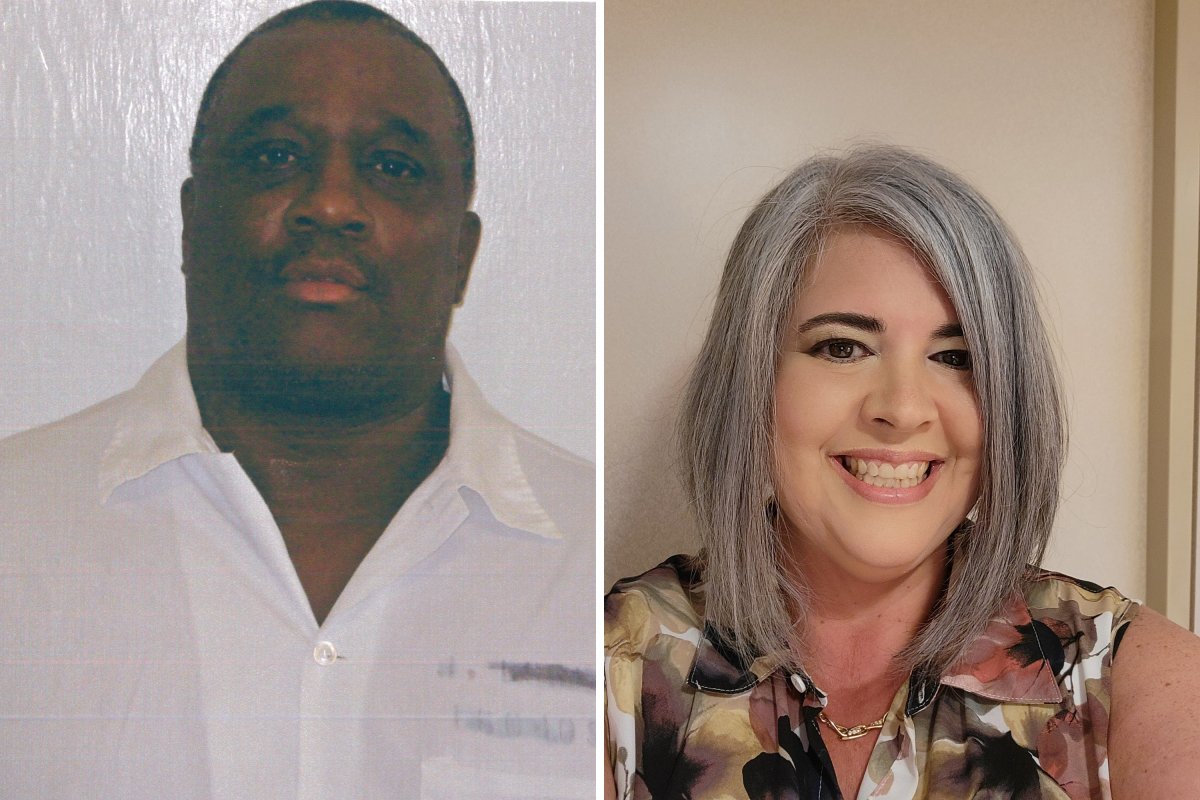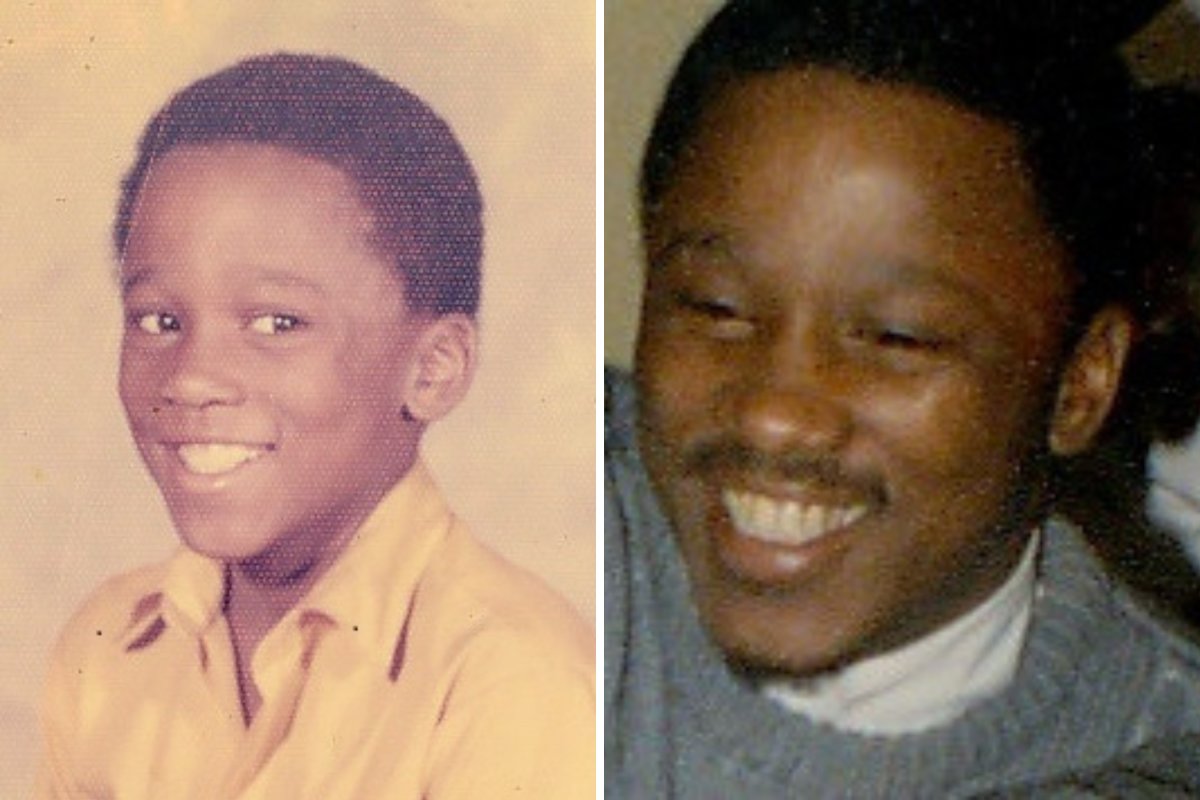I wanted to be a lawyer since I was five years old. Of course, I also thought I wanted to be a teacher, a circus performer, a journalist, and so on over the years—but somehow, I arrived back at lawyer by the time college graduation came around.
In all variations of my life as a lawyer, I've been lucky enough to help people. I specifically felt a calling to work with death row populations.
I believe those on death row are often left out of conversations around support and help. They are often people who never had anyone stand up for them, and I am grateful to be doing this work with them.
And doing this work in Alabama is truly operating on the front lines, where the most help is needed. Working for people incarcerated on death row is incredibly rewarding, but it can also be stressful and disheartening.

I was assigned Rocky Myers' case in November 2007. He had been a client of our office since March 2004, and I met him for the first time in February 2008.
Rocky, a Black man, was convicted and sentenced to life without the possibility of parole in Alabama for allegedly murdering his white neighbor. There is no evidence linking him to the murder except for a video recorder, which Rocky states he had found abandoned in the street.
At the age of 11, Rocky was diagnosed with an intellectual disability and his assigned lawyer abandoned his case without notice. This meant Rocky missed key deadlines for judicial appeals. But the U.S. Supreme Court rejected his request for a deadline extension, despite Rocky having an intellectual disability.
The first time I met Rocky, he was very quiet and did not interact with me a great deal. I visited him with another attorney who he knew. I mostly sat in the background and observed their interactions. I was aware of Rocky's intellectual disability and needed to make sure that he understood fully everything we communicated.
I knew that helping Rocky would require a court to excuse the default. So, coming into his case, I was well aware that the deck was stacked against him—even more than normal with someone on death row. Having read his record, there were also so many things that made me realize his was an unjust conviction and sentence.
Rocky has long carried shame over the status of his legal case. He blames his struggle with drugs for allowing him to be in a situation where he could be a suspect in a case like this. He also blames his struggle with drugs for not being there for his family.
He has not used drugs since the time of his arrest in 1991, and he uses his time now to talk to others about the danger of addiction.
When Rocky's state post-conviction attorney abandoned him mid-appeal, Rocky had no idea it had happened. He presumed everything was moving along. It wasn't until he received a letter from the Attorney General that he learned his right to appeal had expired and that Alabama was moving to set an execution date.
Because of his reading ability, Rocky wasn't even able to read that letter—a friend of his on the row read it to him. They helped him reach out and get counsel to try and fix this problem. Rocky has long blamed himself for not knowing that he had been abandoned by counsel.
Rocky is also always hopeful. He is a man of deep faith and he is a praying man. He often talks about his prayers and hopes and his family. He is a sports fan. He loves the New York Yankees and the New York Giants, and he will often talk about his teams and how they are doing.
He also loves music. Rocky has been involved in music since childhood and will talk about his family's gospel band, and his own musical favorites. But above all, I was moved by how often he told stories about his siblings and his upbringing.
There are many injustices in Rocky's case. From the start, Rocky was arrested and charged with little evidence—other than the word of witnesses who had previously implicated someone else.
As a poor Black man, he was subject to appointed counsel because Alabama does not have a statewide public defender system. Poor people are assigned counsel by elected judges.
In his case, Rocky was assigned an attorney who previously regularly represented the Ku Klux Klan.

Rocky was then given a jury consisting of 11 white people and one Black person. The opening statements of Rocky's own counsel prejudiced him from the start. His counsel talked about the area where he lived as being "the very pit of hell."
He told the jury that "decent people don't have any business" there. He differentiated his own client from the jury referencing them as "God-fearing people" and "honorable members of the community," and because of that he worried about talking to them about "crack town" where his own client lived.
Counsel failed to fully challenge the case at trial and created division between the jury and his client with statements like those from the outset.
In the end, a jury of 11 whites convicted Rocky, but they voted to spare his life by recommending life without parole. Because of the Alabama laws at the time, the single, elected judge was able to override that and sentence Rocky to death.
That process is no longer allowed in Alabama—but the legislature failed to make it retroactive, leaving Rocky and others on death row.
In Rocky's case, this feels particularly egregious because we know from speaking with one of the jurors that there was a disagreement among them. There was a group of jurors that believed Rocky was not guilty, but they reached a compromise with the other jurors to vote to convict—if they agreed to sentence him to life.
Rocky's is a case where an intellectually disabled Black man was disadvantaged from the start because of poverty and a broken justice system. His counsel failed to take into account or raise his intellectual disability, which created problems in the case.
Race, poverty, and inequality all operated to create multiple unjust situations in Rocky's case.
When Rocky lost his last appeal, he told me that he did not want clemency. He said he was tired, and he didn't want to beg anyone for his life. I told him that he was in luck because I would be doing the begging and it didn't bother me.
But, a much more serious conversation followed. I told him that clemency was mostly something on paper in Alabama, that it had only been granted once—to a white lady on the governor's last day in office.
I told him that I hoped and prayed he would get clemency, but that I was not going to lie to him about the odds. I also told him that if he would let us pursue clemency on his behalf, we would tell his story to anyone we could get to listen. We would tell people about everything that went wrong in his case.
Rocky, and each of us on his legal team are hopeful Rocky's story will help people understand the problems with the justice system in Alabama and in the U.S. We also hope it will help stop other stories like Rocky's from happening.
Our plan is to continue fighting for Rocky's life. We continue to push for others to join that fight and try to educate people about the injustices in Rocky's case and in far too many cases in Alabama.
Rocky Myers, a Black man with an intellectual disability, is under sentence of death for murder in the U.S., despite no evidence directly linking him to the crime scene and serious flaws in his legal case. The judge imposed a death sentence against the jury's wishes. Rocky's lawyer, Kacey Keeton, is the attorney on Rocky's case.
Amnesty International's Write for Rights campaign helps transform the lives of people like Rocky, whose rights have been wronged.
All views expressed in this article are the author's own.
Do you have a unique experience or personal story to share? Email the My Turn team at myturn@newsweek.com
Uncommon Knowledge
Newsweek is committed to challenging conventional wisdom and finding connections in the search for common ground.
Newsweek is committed to challenging conventional wisdom and finding connections in the search for common ground.
About the writer
Kacey Keeton is the attorney for Rocky Myers, a Black man with an intellectual disability, under sentence of death for ... Read more
To read how Newsweek uses AI as a newsroom tool, Click here.








